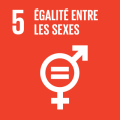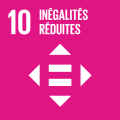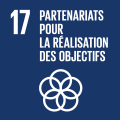
Liderazgo y Empoderamiento para Mujeres en el Deporte
Strategies and tools to drive change.
Description
This Summer Course is designed to strengthen the leadership and empowerment of women in sports management and coaching roles. Aimed at 80 participants, both on site and online, the course offers a comprehensive and practical training experience guided by the president of the Tximist Foundation, an organization with years of experience promoting women's leadership in sport.
Not only does the course provide attendees with practical leadership and management tools, but it also boosts their role as change agents in sport, promoting greater diversity and inclusion in their respective environments. In addition, a professional network of women leaders in sport will be created, thus expanding the scope of gender equality in sport.
Objectives
Train and empower women in the sports field, especially managers and coaches with leadership and management skills and empowerment strategies, in order to strengthen their role in their organizations and in the sports sector in general.
Activity directed to
- All public
- University student
- Students not from university
- Teachers
- Professionals
- Female Athletes, Managers, Coaches, Leaders, People Working in Women's Sports
Methodology
Innovative methodology "Learning by Doing & Connective Leadership" will be applied.
- Opening and initial connection: Voices that inspire. It contains introductory dynamics and an inspiring talk from women leaders in sports, in order to foster trust and exchange within participants from the very beginning.
- Interactive blocks and practical workshops. Practical cases on leadership and female empowerment will be solved in groups, by role-playing and live simulations. In this way, leadership skills might be developed through direct experiences.
- Micro-mentoring and personalized feedback. Mentoring sessions with constructive feedback between participants will be held to develop authentic and personal leadership.
- Co-creation spaces and network. Speed Networking will be put into practice and the co-creation of collaborative projects in women’s sports will also has its place. Thus, an active network of women in sports will be formed.
- Closing: Commitment to action. Communicate the importance of the personal commitment and post-course follow-up, with the aim of ensuring the application of what has been learned in the professional environment.
Program
07-07-2025
Presentation by the Director of the activity
- Aintzane Encinas Gomez | Fundación Tximist - Presidenta
“Ponencia Inaugural: "El Futuro del Liderazgo Femenino en el Deporte"“
- Eli Sarasola Nieto | Fundación Tximist - Comunicación
“Liderazgo Transformacional: Construyendo Equipos de Alto Rendimiento“
- Yon Berastegui Martinez | UPV-EHU - Profesor psicología deportiva/Campeón Copa Reina Real Sociedad
Break
Round table: “Gestión Deportiva con Perspectiva de Género: Desafíos y Oportunidades“
- Aintzane Encinas Gomez | Tximist Foundation - Presidenta
- Ainara Manterola Ikutza | Zuhegan - Fundadora y Ceo
- Eli Sarasola Nieto | Vaantage - Directora Desarrollo
- Patricia Zugasti Izaguirre | Unitravel - Gerente
Synthesis
08-07-2025
“Comunicación Efectiva para Líderes: Herramientas para la Gestión de Equipos y Proyectos Deportivos“
- Yon Berastegui Martinez | UPV-EHU - Profesor psicologia
“Innovación y Gestión en el Deporte: La Visibilidad Femenina en la Alta Competición“
- Aintzane Encinas Gomez | Fundación Tximist - Presidenta
Break
“El Camino hacia el Futuro: Liderando con Impacto“
- Aintzane Encinas Gomez | Fundación Tximist Fundazioa - Presidenta
- Yon Berastegui Martinez | UPV-EHU - Profesor psicología deportiva/Campeón Copa Reina Real Sociedad
Closing session
- Aintzane Encinas Gomez | Fundación Tximist Fundazioa - Presidenta
Directors
Dynamic leader with 20+ years in football management, blending passion with expertise to drive gender equality and youth empowerment in sports. Spearheads the Tximist Foundation and Cup, fostering global networks and advancing women's leadership. Eager to bring my visionary approach and inclusive leadership to you.
Speakers

Yon Berastegui Martinez
Yon holds a PhD in Psychopedagogical Intervention, a degree in Psychopedagogy, and a diploma in Physical Education Teaching. He has worked as a professor at the HEFA (Faculty of Education, Philosophy, and Anthropology) at the University of the Basque Country/Euskal Herriko Unibertsitatea since 2010. He has taught Psychopedagogy, Sociopersonal Education, and Educational Intervention Programs. He currently teaches classes in the Social Education program and in the Master's Degree in Secondary Education Teaching as a Teaching Assistant in the Department of Educational Sciences. He has been an active member of the GROP (Research Group in Psychopedagogical Guidance) at the University of Barcelona and the University of Lleida since 2016, and of the GANDERE (Gender Socialization and Contexts of Education) research group at the EHU/UPV since 2018.
Dynamic leader with 20+ years in football management, blending passion with expertise to drive gender equality and youth empowerment in sports. Spearheads the Tximist Foundation and Cup, fostering global networks and advancing women's leadership. Eager to bring my visionary approach and inclusive leadership to you.
Ainara Manterola Ikutza
Founder and partner of Zuhegan. Graduate in Physical Activity and Sports Sciences, specializing in movement quality, strength training, and injury recovery. Former first division and international soccer player, both as a soccer player and fitness trainer. Markel's mother.
Eli Sarasola Nieto
VANTAGE
Women's soccer coordinator at Vantage. Expert in individual soccer development, with a focus on perception. Graduated with a B.S. in Exercise Science from the College of Charleston, USA. Former international professional soccer player.

Patricia Zugasti Izaguirre
Registration fees
| Face-to-face | Until 30-06-2025 | Until 07-07-2025 |
|---|---|---|
| 25,00 EUR | 61,00 EUR | |
| - | 87,00 EUR | |
| - | 74,00 EUR | |
| - | 61,00 EUR | |
| - | 74,00 EUR | |
| - | 74,00 EUR | |
| - | 74,00 EUR |
| Live online | Until 30-06-2025 | Until 07-07-2025 |
|---|---|---|
| 25,00 EUR | 61,00 EUR | |
| - | 87,00 EUR | |
| - | 74,00 EUR | |
| - | 61,00 EUR | |
| - | 74,00 EUR | |
| - | 74,00 EUR | |
| - | 74,00 EUR |
Venue
Miramar Palace
Pº de Miraconcha nº 48. Donostia / San Sebastián
Gipuzkoa
Miramar Palace
Pº de Miraconcha nº 48. Donostia / San Sebastián
Gipuzkoa
Sustainable development goals
Agenda 2030 is the new international development agenda approved in September 2015 by the United Nations. This agenda aims to be an instrument to favour sustainable human development all over the planet, and its main pillars are the eradication of poverty, a reduction in equality and vulnerability and fostering sustainability. It is a unique opportunity to transform the world up to 2030 and guarantee human rights for all.

5 - Gender equality
Achieve gender equality and empower all women and young girls. Key issues: the end of all forms of discrimination and violence, recognition of unpaid care and domestic work, shared responsibility, equal opportunities, full and effective participation in reproductive rights, equal rights vis-à-vis economic resources, access to land and other assets and ownership.
More information
10 - Reduced inequalities
Reduce inequality in countries and between them. Key issues: promotion of the social, economic and political inclusion of all people, equal opportunities, fiscal, wage and social protection policies to favour equality, migration and the policies that affect it, official assistance for the development, regulation and supervision of world institutions and markets.
More information
17 - Partnerships for the goals
Strengthen the means of implementation and revitalise the World Alliance for Sustainable Development. Key issues: mobilisation of resources, 0.7% of GDP for official overseas development aid, finances, cooperation in technology and innovation, ecologically rational technologies, skills building, universal and multilateral trade system, coherence on the legislative and institutional levels, availability of data, supervision, indicators and accountability.
More information




